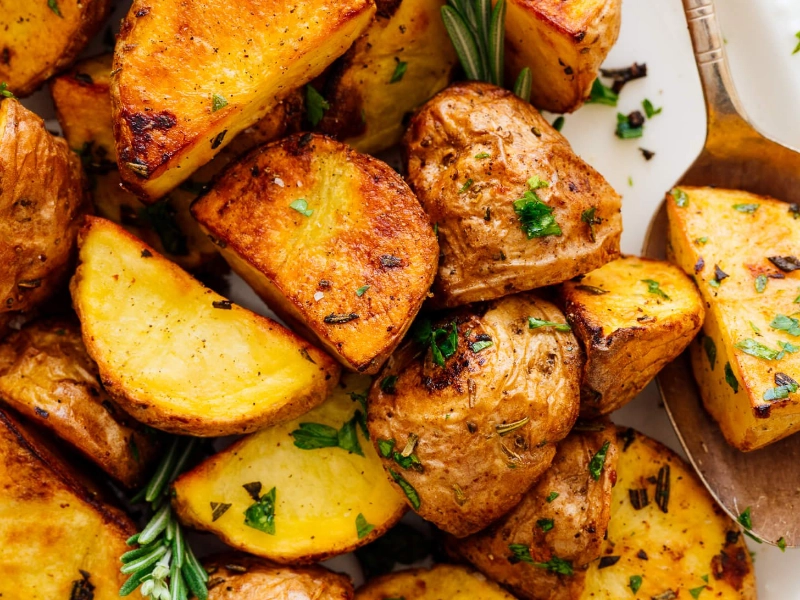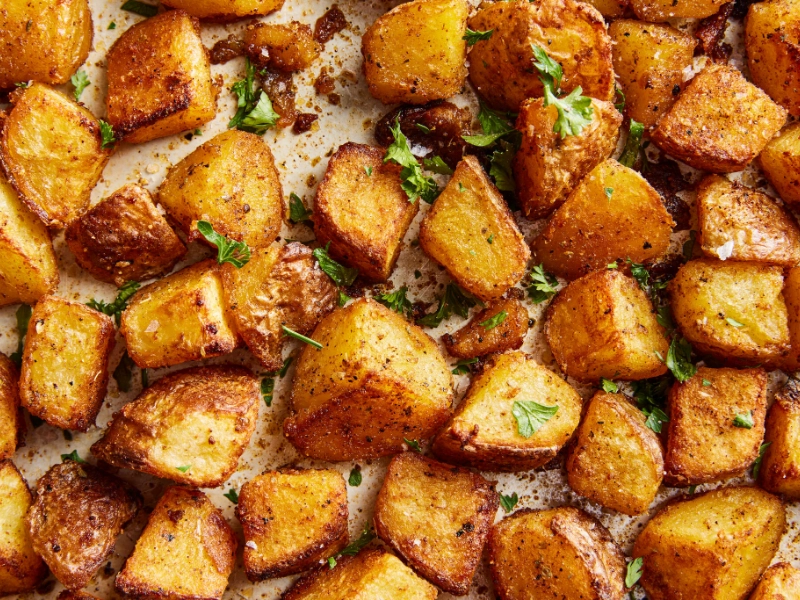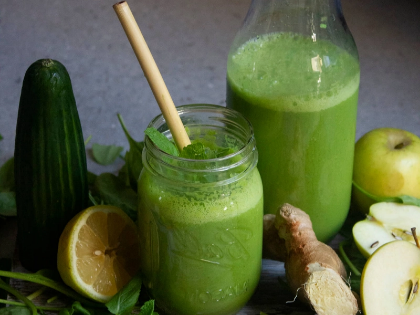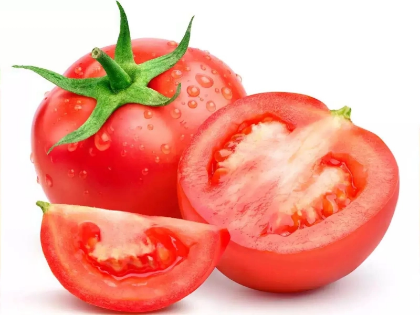Why Potatoes Are Good For Diabetics
Due to their high glycemic index (GI), potatoes are frequently eliminated from diets by those with type 2 diabetes. However, the truth is that potatoes can be a nutritious component of a meal when eaten in moderation. The secret is to stick to healthier potato options like steamed or boiled potatoes instead of fried and mashed ones. Eating them with other slow-digesting foods like protein and non-starchy veggies also helps.
They contain a lot of starch.

They have a lot of fat.
 Potatoes are low on the glycemic index, which rates foods based on how likely they are to raise blood sugar levels; therefore, many diabetics steer clear of them. When it comes to carbohydrate intake, the GI is not the complete picture, though, and it's crucial to take into account how different people react to different foods.
Fiber from potatoes helps to slow down the process of digestion and absorption. This lessens the quantity of glucose that enters the system and helps to avoid sharp decreases in blood sugar levels following a meal. Potatoes should always be paired with other carbohydrates and proteins to help control blood sugar levels.
You can consume a moderate amount of potatoes, whether they are baked, mashed, fried, or boiled, as long as they aren't covered in a lot of butter and sour cream if you have diabetes. But remember that potatoes are high in carbohydrates, so it's better to eat them with other veggies, protein, and fat.
Potatoes are low on the glycemic index, which rates foods based on how likely they are to raise blood sugar levels; therefore, many diabetics steer clear of them. When it comes to carbohydrate intake, the GI is not the complete picture, though, and it's crucial to take into account how different people react to different foods.
Fiber from potatoes helps to slow down the process of digestion and absorption. This lessens the quantity of glucose that enters the system and helps to avoid sharp decreases in blood sugar levels following a meal. Potatoes should always be paired with other carbohydrates and proteins to help control blood sugar levels.
You can consume a moderate amount of potatoes, whether they are baked, mashed, fried, or boiled, as long as they aren't covered in a lot of butter and sour cream if you have diabetes. But remember that potatoes are high in carbohydrates, so it's better to eat them with other veggies, protein, and fat.
They contain a lot of sodium.
 You must watch how many carbohydrates you eat at each meal if you have diabetes. In the digestive tract, carbohydrates are converted to sugar, which enters the bloodstream and raises blood sugar levels. Insulin assists in transferring this sugar into cells so that it can be used as fuel in non-diabetics, but it is absent in diabetics.
Thankfully, potatoes have a form of starch called resistant starch that, when cooked and chilled before consumption, can reduce the glycemic index of potatoes by up to 28%. After a meal, this resistant starch helps maintain steady blood sugar levels since it is not digested.
Potatoes can still be a nutritious food for people with diabetes, but they must be careful when selecting their toppings. Instead of boiling, steaming, or grilling potatoes that are severely salted, they ought to bake, boil, or steam them. Additionally, toppings heavy in saturated fat, such as cheese and sour cream, should be avoided. A person's risk of heart disease may rise if they use these toppings.
You must watch how many carbohydrates you eat at each meal if you have diabetes. In the digestive tract, carbohydrates are converted to sugar, which enters the bloodstream and raises blood sugar levels. Insulin assists in transferring this sugar into cells so that it can be used as fuel in non-diabetics, but it is absent in diabetics.
Thankfully, potatoes have a form of starch called resistant starch that, when cooked and chilled before consumption, can reduce the glycemic index of potatoes by up to 28%. After a meal, this resistant starch helps maintain steady blood sugar levels since it is not digested.
Potatoes can still be a nutritious food for people with diabetes, but they must be careful when selecting their toppings. Instead of boiling, steaming, or grilling potatoes that are severely salted, they ought to bake, boil, or steam them. Additionally, toppings heavy in saturated fat, such as cheese and sour cream, should be avoided. A person's risk of heart disease may rise if they use these toppings.
They contain a lot of potassium.
 Potassium, a mineral that helps control blood sugar levels, is abundant in potatoes. They also have B6 and C in them. Studies suggest that they might even aid with weight loss. They are an excellent source of fiber and low in fat and salt. But because potatoes are high in carbohydrates, consuming significant amounts of them may raise blood sugar levels. When consuming these veggies, people with diabetes should limit their intake and combine them with slower-digesting foods like protein and non-starchy vegetables.
Notwithstanding the debate, it's critical to remember that potatoes can be a healthy component of a diabetic's balanced diet. Eating them in moderation and monitoring your blood sugar levels every two hours after meals are crucial. Vegetables, a moderate amount of starch, and protein should all be included in a nutritious diet.
Potassium, a mineral that helps control blood sugar levels, is abundant in potatoes. They also have B6 and C in them. Studies suggest that they might even aid with weight loss. They are an excellent source of fiber and low in fat and salt. But because potatoes are high in carbohydrates, consuming significant amounts of them may raise blood sugar levels. When consuming these veggies, people with diabetes should limit their intake and combine them with slower-digesting foods like protein and non-starchy vegetables.
Notwithstanding the debate, it's critical to remember that potatoes can be a healthy component of a diabetic's balanced diet. Eating them in moderation and monitoring your blood sugar levels every two hours after meals are crucial. Vegetables, a moderate amount of starch, and protein should all be included in a nutritious diet.







